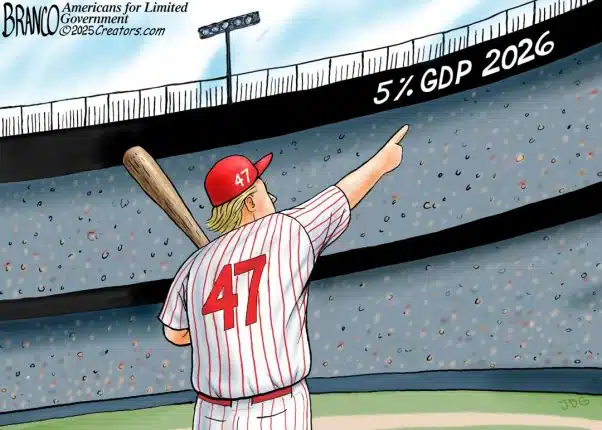By Nathan Mehrens
As originally published at http://www.investors.com/politics/commentary/government-sides-with-unions-over-businesses-again/
If you don’t show up for work and are permanently replaced can your employer get in trouble? According to the general counsel of the National Labor Relations Board (NLRB), the answer is yes.
In a case currently pending before the NLRB, General Counsel Richard F. Griffin Jr. is asking for yet another round of restrictions on how employers do business. Not content to be simply meddling with employer handbooks, how they control their email systems, and trying to turn every employer in the land into joint employers, he is now trying to make it impossible for employers to hire permanent replacement employees when employees go on strike.
There is a common sense rule that an employer may replace employees who refuse to show up to work. This has some limitations, but generally permanent replacement employees may be hired to do the work of those who go on strike.
In the case at issue here, the administrative law judge found that because the employer did not tell the union that permanent replacement employees would be hired until after all the positions of the strikers had been filled, the employer acted with an illicit motive, an “independent unlawful purpose.” That the union would not realize this is unimaginable.
The judge also pointed to a “Non-Union Philosophy” that the employer had in its handbook, which simply states that the employer will use legal methods “to prevent any outside, third party, who is potentially adversarial, such as a union from intervening or interrupting the one-on-one communications or operational freedoms that we currently enjoy with our associates.” An employer’s desire to be union-free is something that is well within their rights, but this was apparently interpreted by the judge as evidence of an illegal purpose.
After the striking employers were replaced, the employees all got together and decided that they no longer wanted to be represented by a union. After notifying the employer of this, the employer withdrew recognition of the union as the representative of the employees. It likely did this because it would generally be unlawful for an employer to bargain with a union unless that union is in fact the representative of the employees.
As argued for by Griffin, the judge found that the employer violated the law in both hiring permanent replacement employees and then listening to the employees when they decided that they didn’t want a union.
The general counsel’s flippant disregard of the need for employers to be able to maintain operations, and for that for employees who express a desire for anything other than forced collective bargaining is on full display here.
Griffin has asked the Board to overrule existing precedent and to hold that the hiring of permanent replacement employees is inherently destructive of the right to strike. He also desires a requirement that an employer must furnish a “substantial business justification that outweighs the harm to employee rights.”
The notion here is founded upon a belief that permanently replacement being “inherently destructive,” “bears ‘its own indicia’ of unlawful intent.” What the General Counsel is saying is that the employer is presumed guilty of violating the law and that the burden is first upon them to prove otherwise. This would make the hiring of replacement employees next to impossible to legally accomplish.
The matter has been briefed and we are now awaiting a decision from the Board. Given the Board’s current composition, a decision that favors the union is likely. As the Board currently has two of its five member positions open, the nominees to the Board from the next president will either shift the Board back to the center, or further cement the current rampage against anything that looks favorable to employers. Let us hope that it is the former.






